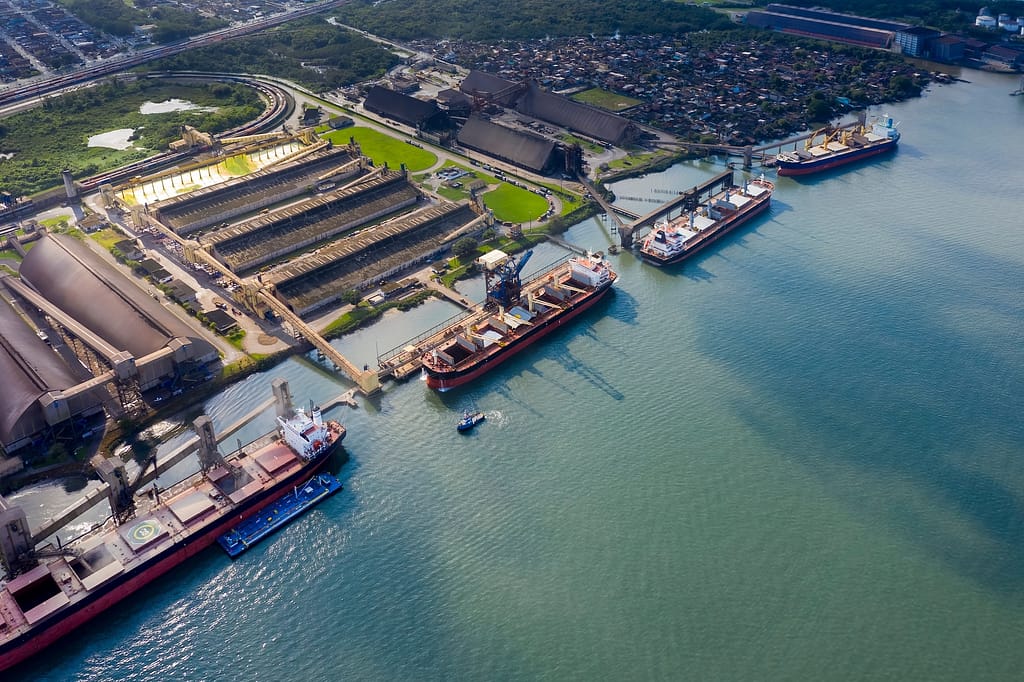[[{“value”:”

Sections of the Brazilian coffee supply chain have taken aim at the country’s port and logistics infrastructure, labelling it “a critical obstacle” for key agribusiness sectors.
Logistical bottlenecks caused a failure to ship 637,767 bags of coffee – the equivalent of approximately 1932 containers – in March 2025 according to the Brazilian Coffee Exporters Council (Cecafé), which resulted in a loss of roughly US$1.568 million.
Brazil’s National Supply Company (Conab) recently increased its coffee production forecast for 2025 to an estimated 55.7 million bags, meaning the total number of bags of coffee is only set to climb over the remainder of the year, despite the ongoing shipping issues.
This total would represent a 2.7 per cent increase in production compared to 2024 and would mark the largest harvest ever recorded for a year of low biennial production.
Rodrigo Reis, Logistics Manager at the Cerrado Coffee Growers Cooperative (Expocacer), says the bottlenecks currently plaguing Brazilian ports are impacting all levels of Brazil’s coffee supply chain.
“These added operational costs could be used to increase the value of the coffee. Instead, we are spending with infrastructure failures,” Reis says.
“The lack of predictability affects the entire supply chain. When a ship is delayed – or arrives early – we have to reposition containers, pay detention fees, and deal with missed deadlines. It creates a ripple effect of inefficiencies and extra costs.
“Brazil urgently needs to rethink its logistics strategy. It’s no use promoting our coffee abroad if we can’t ship it reliably and cost-effectively. We’re still operating with infrastructure stuck in the past, while export volumes grow year after year. The math just doesn’t add up.”
CEO of MTM Logix, a global logistics company based in Mexico, Mario Veraldo, says the issues facing coffee export out of Brazilian ports have become systemic to the nation’s maritime logistics sector.
“Brazilian ports are operating at full capacity,” Veraldo says. “Outdated equipment, lack of maintenance, and underinvestment have created an unsustainable solution.
“There is an urgent need to expand and modernise Brazil’s ports, streamline bureaucratic processes, and invest in technology and alternative logistics solutions – such as the Northern Arc ports, which are emerging as strategic routes for exporting Brazilian agricultural products.”
Veraldo has called for added investment into the modernisation and digitisation of Brazil’s ports to limit inefficiency in its agribusiness sectors.
“Digitisation and automation are emerging as strategic tools to transform Brazil’s port logistics, which are currently plagued by inefficiencies and high costs. Smart technologies can speed up processes, reduce operational errors, and improve information management across the entire supply chain.
“For modernisation to happen at scale, public sector engagement is essential. Policies that expand infrastructure investment, incentivise private participation, reduce regulatory red tape, integrate different modes of transport, and improve workforce training are urgently needed to unlock the system and prepare Brazilian ports for future logistics challenges.”
The post Brazilian port issues plaguing coffee exports appeared first on Global Coffee Report.
“}]]


